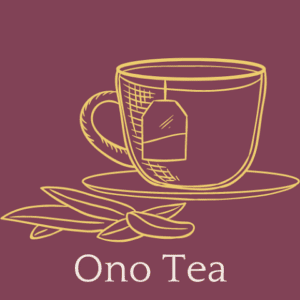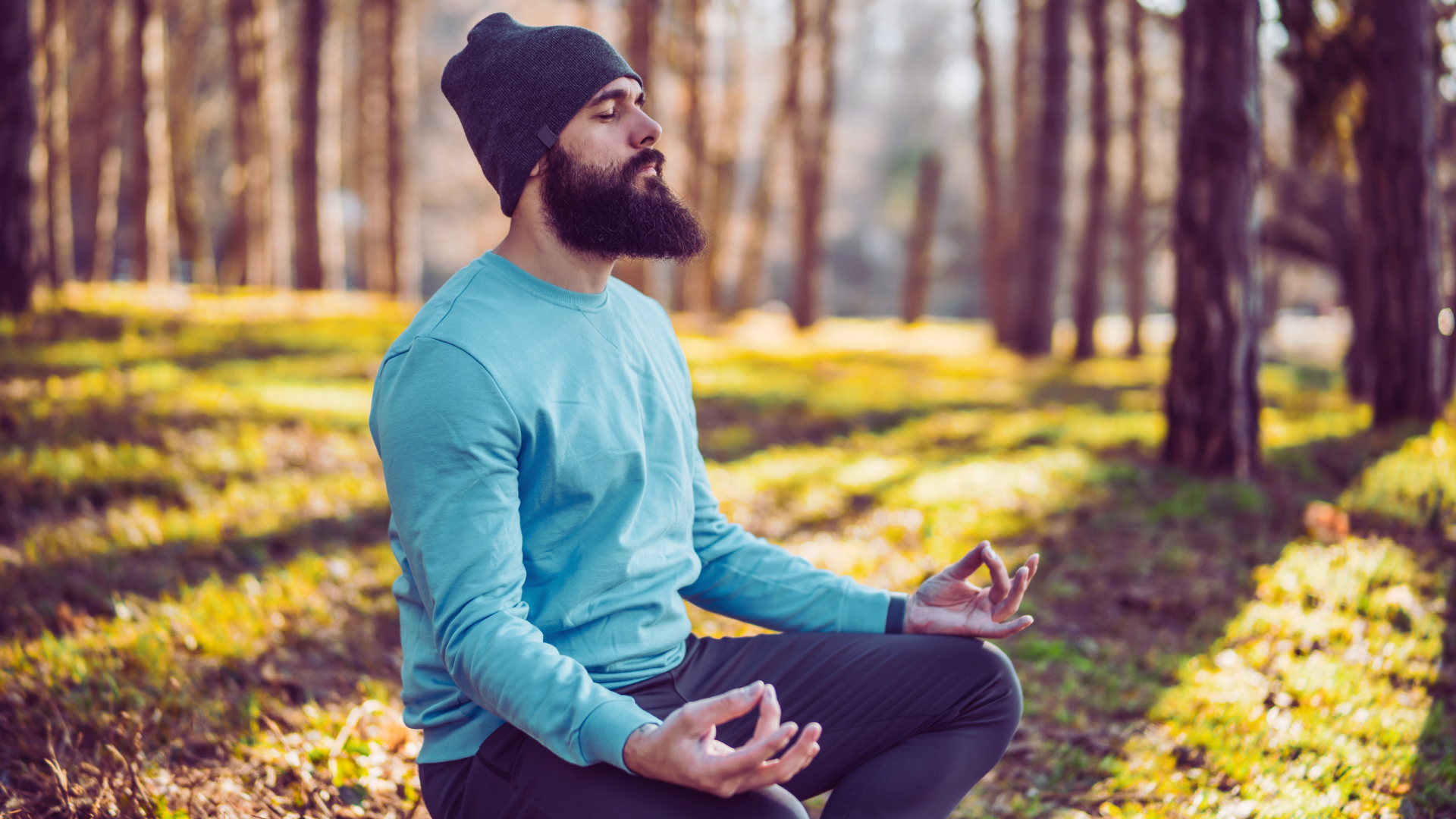In a world that often feels like a whirlwind of noise and distraction, spiritual seekers turn to moments of stillness to reconnect with their inner selves and the universe. Whether through meditation, prayer, journaling, or quiet contemplation, these practices invite mindfulness and reflection—gateways to deeper understanding and peace. For centuries, tea has been a sacred companion in this journey, offering not just a beverage but a ritual that grounds the body, calms the mind, and opens the heart.
At Onotea, we believe tea is a bridge to the divine, a way to pause and listen to the whispers of the soul. In this article, we explore why tea is the perfect ally for spiritual seekers, the science behind herbs that enhance mindfulness, and our top meditative tea blends to support reflection. We’ll also share brewing tips, mindfulness rituals, and insights from spiritual practitioners who use tea to deepen their practice. Whether you’re a seasoned meditator or a curious soul stepping onto the path, these teas will guide you toward moments of sacred stillness.
Why Tea? A Sacred Ritual for Spiritual Seekers
Tea has been intertwined with spirituality for millennia, from the Zen tea ceremonies of Japan to the Ayurvedic healing traditions of India. Its preparation is a meditation in itself: the slow boil of water, the gentle unfurling of leaves, the rising steam carrying whispers of earth and herb. For spiritual seekers, tea offers a tactile way to anchor the present moment, fostering mindfulness—the art of being fully here, now.
Unlike stimulants like coffee, which can overexcite the nervous system, or alcohol, which clouds awareness, herbal teas strike a balance. They soothe without sedating, sharpen focus without agitation, and invite a state of calm alertness ideal for meditation and reflection. The act of sipping tea also engages the senses—taste, touch, smell—creating a multisensory experience that draws you into the present.
Science supports tea’s role in spiritual practice. Certain herbs contain compounds that reduce stress, enhance focus, and promote emotional balance, making them perfect for mindfulness. Let’s explore the key herbs that form the heart of meditative tea blends.
The Science of Meditative Herbs
Herbal teas work through phytochemicals—natural compounds that interact with the brain and body to promote calm, clarity, and emotional resilience. Here are the top herbs for spiritual seekers, backed by research:
- Holy Basil (Tulsi): Revered in Ayurveda as a sacred herb, tulsi is an adaptogen that helps the body adapt to stress. A 2017 study in Evidence-Based Complementary and Alternative Medicine found that tulsi reduces cortisol levels and enhances mental clarity, making it ideal for meditative focus.
- Chamomile: Known for its gentle, calming effects, chamomile contains apigenin, which binds to brain receptors to reduce anxiety. A 2016 study in Phytomedicine showed chamomile’s efficacy in lowering anxiety symptoms, perfect for creating a peaceful state for reflection.
- Gotu Kola: Used in traditional Chinese and Ayurvedic medicine, gotu kola enhances cognitive function and reduces stress. A 2016 study in Journal of Ethnopharmacology found that it improves memory and mood, supporting introspective practices.
- Lavender: Beyond its soothing aroma, lavender tea calms the nervous system. A 2010 study in Phytotherapy Research showed that lavender reduces heart rate and anxiety, fostering a serene mindset for meditation.
- Rose: Rose petals offer emotional uplift and heart-opening properties. A 2016 study in Complementary Therapies in Medicine found that rose extract reduces stress and promotes feelings of love and connection, aligning with spiritual practices that emphasize compassion.
- Lemon Balm: This citrusy herb boosts GABA, a neurotransmitter that calms overactive thoughts. A 2014 study in Nutrients confirmed lemon balm’s ability to reduce anxiety and enhance mood, making it a favorite for mindful reflection.
These herbs, alone or blended, create teas that support the body and mind during spiritual practice. Let’s dive into our top recommendations for meditative blends.
Top Meditative Tea Blends for Spiritual Seekers
At Onotea, we’ve crafted tea blends to elevate your mindfulness and reflection practices. Each blend combines flavor, intention, and science to create a sacred sipping experience. Here are our top picks, with tasting notes and preparation tips:
1. Tulsi Tranquility
- Ingredients: Holy basil (tulsi), chamomile, lemongrass
- Flavor Profile: Earthy and herbaceous with a bright, citrusy lift
- Why It Works: Tulsi’s adaptogenic properties balance stress, chamomile soothes the mind, and lemongrass adds a refreshing note that keeps you alert yet calm. This blend is perfect for morning meditations or moments of gratitude.
- Brewing Tip: Steep 1 tablespoon in 8 oz of water at 200°F for 5-7 minutes. Sip slowly while focusing on your breath.
- Practitioner’s Insight: “Tulsi tea feels like a prayer in a cup,” says yoga teacher Amara Singh. “I drink it before my sunrise meditation to feel grounded and connected.”
2. Lavender Moonlight
- Ingredients: Lavender, rose petals, green rooibos
- Flavor Profile: Floral and slightly sweet with a smooth, earthy base
- Why It Works: Lavender calms the nervous system, rose opens the heart, and green rooibos provides antioxidants without caffeine. This blend is ideal for evening reflection or heart-centered practices like loving-kindness meditation.
- Brewing Tip: Steep 1 teaspoon in 8 oz of water at 195°F for 5 minutes. Pair with a journal to capture post-meditation insights.
- Practitioner’s Insight: “This tea helps me soften into my emotions,” shares mindfulness coach Elena Ruiz. “It’s my go-to for reflecting on gratitude.”
3. Gotu Kola Clarity
- Ingredients: Gotu kola, peppermint, licorice root
- Flavor Profile: Minty and refreshing with a subtle sweetness
- Why It Works: Gotu kola sharpens focus, peppermint clears mental fog, and licorice root soothes the throat and adds natural sweetness. This blend supports deep contemplation or visualization practices.
- Brewing Tip: Steep 1.5 teaspoons in 8 oz of water at 190°F for 6-8 minutes. Serve hot or iced for a versatile ritual.
- Practitioner’s Insight: “I sip this before my Tarot readings,” says intuitive healer Maya Chen. “It helps me tune into my intuition without distraction.”
4. Rose Reverie
- Ingredients: Rose petals, chamomile, hibiscus
- Flavor Profile: Delicately floral with a tart, vibrant finish
- Why It Works: Rose fosters emotional connection, chamomile calms the mind, and hibiscus adds a burst of antioxidants and uplifting energy. This blend is perfect for heart-opening meditations or rituals focused on self-love.
- Brewing Tip: Steep 1 tablespoon in 8 oz of water at 200°F for 5-7 minutes. Add a touch of honey to enhance the floral notes.
- Practitioner’s Insight: “Rose tea feels like a hug from the universe,” says poet and meditator Liam Foster. “It’s my companion for writing reflective poetry.”
5. Lemon Balm Serenity
- Ingredients: Lemon balm, lavender, holy basil
- Flavor Profile: Citrusy and floral with a warm, grounding undertone
- Why It Works: Lemon balm’s GABA-boosting properties quiet racing thoughts, lavender soothes, and holy basil balances energy. This blend is excellent for mindfulness practices that require emotional clarity.
- Brewing Tip: Steep 1 tablespoon in 8 oz of water at 190°F for 6-8 minutes. Serve with a slice of fresh lemon for added vibrancy.
- Practitioner’s Insight: “This tea centers me before my breathwork sessions,” says spiritual guide Noor Khan. “It’s like a reset for my soul.”
Brewing the Perfect Cup: Tips for Spiritual Seekers
To fully harness the meditative power of these teas, follow these brewing tips:
- Choose Quality Water: Use filtered or spring water to honor the purity of the herbs and enhance their flavors.
- Respect the Temperature: Herbal teas shine at 190-200°F. Boiling water can scorch delicate leaves, diminishing their spiritual and sensory qualities.
- Steep with Presence: Let the tea steep for 5-10 minutes to extract its full essence. Use this time to set an intention for your practice.
- Engage the Senses: Before sipping, inhale the aroma, feel the warmth of the cup, and notice the color of the infusion. This sensory awareness deepens mindfulness.
- Create Sacred Space: Brew your tea in a quiet, clutter-free area. Light a candle, burn incense, or play soft music to enhance the ritual.
For an added touch, infuse your tea with an intention. As you stir, silently or aloud, state a purpose for your practice, such as “May this tea open my heart to peace” or “May I find clarity in this moment.”
Tea Rituals for Mindfulness and Reflection
Tea can transform a simple moment into a sacred ritual. Here are three tea rituals to deepen your spiritual practice:
- The Mindful Sip: Brew your tea and sit in a comfortable position. With each sip, focus on the sensation of the liquid, the warmth, and the flavor. If your mind wanders, gently return to the act of sipping. This practice trains present-moment awareness.
- The Intention Setting: Before drinking, hold your cup and visualize your intention for the day or meditation. Speak it into the tea, then sip slowly, imagining the intention infusing your body and spirit.
- The Gratitude Pour: Pour a cup for yourself and an empty cup for the universe, ancestors, or a higher power. As you sip, reflect on three things you’re grateful for, offering thanks with each thought.
Voices of the Soul: Spiritual Seekers Share Their Tea Stories
We connected with spiritual practitioners to learn how tea supports their journeys. Here’s what they shared:
- Anika Rao, Ayurvedic Practitioner: “Tulsi tea is my morning ritual. It aligns my energy before I guide clients through healing sessions. It’s like a blessing I can taste.”
- Javier Luna, Zen Meditator: “Lavender tea helps me settle into zazen. The act of brewing it is as meditative as sitting on my cushion.”
- Sofia Mendes, Journaling Enthusiast: “Rose tea opens my heart when I write. It’s like the petals help me access deeper truths.”
- Tenzin Dorje, Buddhist Monk: “Lemon balm tea is my companion for long retreats. It keeps my mind clear and my heart soft.”
Beyond Meditation: Tea for Daily Spiritual Living
While meditation is a cornerstone of spiritual practice, mindfulness extends to everyday life—cooking, walking, or listening to a friend. The same teas that support meditation can enhance these moments. Sip Tulsi Tranquility while reading sacred texts, or enjoy Rose Reverie during a quiet walk in nature. Over time, tea becomes a thread weaving mindfulness into your daily tapestry.
Final Reflections: Your Cup, Your Journey
Spiritual seeking is a deeply personal path, and tea is a gentle guide, offering warmth, clarity, and connection. At Onotea, we invite you to explore our meditative tea blends and discover which ones resonate with your soul. Whether you’re sitting in silence, journaling your dreams, or praying under the stars, let tea be your companion in the sacred art of being.

